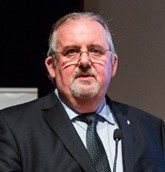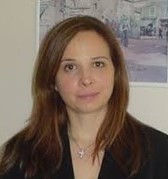Some innovative approaches to support effective healthcare projects
FEATURED PAPER
By Massimo Pirozzi and Dr. Lidia Strigari
Rome and Bologna, Italy
ABSTRACT
In today’s world, both the extent and the complexity of healthcare projects need special approaches to reach efficacy and efficiency respecting ethical and other constraints, preserving the care to the person by achieving the satisfaction of stakeholders, and minimizing negative risks. Evidence Based Medicine (EBM) takes into account the above factors by integrating best scientific evidence with both clinical expertise and patient values and expectations, while Project Management discipline can effectively support EBM in facing complexity. This paper introduces briefly today’s complexity scenario in healthcare, gives a synthetic overview on Evidence Based Medicine, shows the utility of project management in supporting effective EBM projects by facing complexity with efficacy and efficiency, and proposes also an innovative stakeholder-centered project management approach, called Project Management X.0, and an innovative patient-centered model for Evidence Based Medicine projects, called EBM X.0, which, via their integration, may increase healthcare projects’ success rates and delivered value by taking advantage of Web 1.0/2.0/3.0/4.0 technologies in order to empower, and to speed up, decision support in both project management, and project delivery, processes.
COMPLEXITY FACTORS IN TODAY’S HEALTHCARE SYSTEM
E-health is the complex of network human and technology resources, solutions, and information technologies applied to health and healthcare, and complexity theory and concepts may help to explain successes, partial successes and failures in technology-supported innovation programmes in health and social care (Greenhalgh, et al. 2018).
The condition of disease is intrinsically complex because it is poorly characterized, poorly understood, unpredictable in its natural history or associated with multiple comorbidities or socio-cultural concerns (such as poverty, poor health literacy, or beliefs or traditions). Cancer, for instance, represents one of the most complex issues to approach precisely, because it is not a stable object, but it evolves over time as a function of latent or silent parameters, which change the probability of success of any approach that alters the probability of early detecting or eradicating it. In addition, several parameters that characterize the disease are variable over time being related to the dynamism of the tumor and its interactions with the surrounding environment. Consequently, the same therapy is not equally effective between two similar subjects.
The introduction of novel technology may bring, of course, bring important benefits, but, at the same time, may create additional complexity because of its interaction with multiple components. In particular, complexity is relevant when new technology conflicts with established technologies and when it is necessary to work to build a shared vision, engage staff, implement new practices, monitor impact, and support ongoing adaptation. In other cases, innovation (e.g. introducing artificial intelligence techniques) not only requires staff to take on new roles, but also puts staff under pressure, threatens their professional identity, values or field of practice, or even poses a risk of job loss.
In patient experience of chronic illness, the healthcare networks work aimed at managing symptoms, and at retarding – and sometimes preventing – disease progression (May, et al. 2014). In the face of these challenges, we need to better understand patients’ needs and expectations to optimize healthcare resources, and this introduces additional complexity. A further complexity factor is when the supply-side value proposition is based on an underdeveloped, implausible or risky business case (thus, it is unlikely to attract investment), or the demand-side value proposition suggests that (from the patient’s point of view) the technology may be undesirable, unsafe, ineffective or inaccessible. The adopting system is complex because it requires patients to undertake complex tasks such as initiating changes in therapy or making judgments about what an emergency is; or because it presupposes a capillary network available and able to coordinate with the inputs received. An example of complex adopting system is represented by the Covid-19 emergency that we are experiencing in these days.
EVIDENCE BASED MEDICINE
In healthcare, the evidence, which are objective, are foundational to support both clinical practices and scientific research in facing and solving complexity, and in minimizing related risks. Indeed, several practices that are not evidence-based may rely on tradition, intuition, or other unproven methods, and, therefore, may give unreliable and/or uncertain and/or unrepeatable results. An Evidence Based Medicine (EBM) practice is any practice or scientific research that relies on scientific evidence for guidance and decision-making in an attempt to integrate (Fig.1) the experience of the clinician, the patient’ values and the best available scientific information (Brownson, et al. 2003; Sackett, et al. 1996).
More…
To read entire paper, click here
How to cite this paper: Pirozzi, M., Strigari, L. (2020). Project Management for Evidence Based Medicine: Some innovative approaches to support effective healthcare projects; PM World Journal, Vol. IX, Issue XII, December. Available online at https://pmworldlibrary.net/wp-content/uploads/2020/12/pmwj100-Dec2020-Pirozzi-Strigari-project-management-for-evidence-based-medicine.pdf
About the Authors

Massimo Pirozzi
Rome, Italy
![]()
Massimo Pirozzi, MSc cum laude, Electronic Engineering, University of Rome “La Sapienza”, Principal Consultant, Project Manager, and Educator. He is a Member of the Executive Board and of the Scientific Committee, and an Accredited Master Teacher, of the Istituto Italiano di Project Management (Italian Institute of Project Management). He is certified as a Professional Project Manager, as an Information Security Management Systems Lead Auditor, and as an International Mediator. He is a Researcher, a Lecturer, and an Author about Stakeholder Management, Relationship Management, and Complex Projects Management, and his papers have been published in U.S.A., in Italy, and also in Russia; in particular, he is the Author of the innovative Book “The Stakeholder Perspective: Relationship Management to enhance Project value and Success”, CRC Press, Taylor & Francis Group, Boca Raton (FL), U.S.A., October 2019. Due to the acknowledgement of his comments on stakeholder-related issues contained in Exposure Draft of The Standard for Project Management – 7th Edition, he will be also included in the list of Contributors and Reviewers of The PMBOK® Guide – Seventh Edition.
Massimo Pirozzi has a wide experience in managing large and complex projects, programs, and portfolios in national and international contexts, and in managing business relations with public and private organizations, including multinational companies, small and medium-sized enterprises, research institutes, and non-profit organizations. He worked successfully in several sectors, including Defense, Security, Health, Education, Engineering, Logistics, Cultural Heritage, Transport, Gaming, Services to Citizens, Consulting, and Web. He was also, for many years, a Top Manager in ICT Industry, and an Adjunct Professor in Organizational Psychology. He is registered as an Expert both of the European Commission, and of Italian Public Administrations.
Massimo Pirozzi is an Accomplished Author and the International Correspondent in Italy of PM World Journal. He received two 2019 PM World Journal Editor’s Choice Awards for his featured paper “Stakeholders, Who Are They?”, and for his report from Italy titled “PM Expo® and PM Maturity Model ISIPM-Prado®”. He received also the 2018 PM World Journal Editor’s Choice Award for his featured paper “The Stakeholder Management Perspective to Increase the Success Rate of Complex Projects”.
Massimo can be contacted at max.pirozzi@gmail.com.

Dr. Lidia Strigari
Bologna, Italy
![]()
Lidia Strigari, MSc cum laude in Physics, Doctor of Medical Physics, PhD in Advanced Technologies in Biomedicine, Doctor’s Degrees in Physical Basis and Technology in the field of hadron-therapy and stereotactic radiotherapy, in Statistics in Biomedical Science, in Economy and Management in Healthcare, holds a Certification in Project Management released by the Istituto Italiano di Project Management (Italian Institute of Project Management).
Lidia Strigari is presently Head of Department of Medical Physics and Expert Systems at the St. Orsola University Hospital and Research Center in Bologna. She has previously been the Head of the Laboratory of Medical Physics and Expert Systems at the IRCCS Regina Elena National Cancer Institute (IRE-IFO). She is Associate Professor of the Medical Physics Post-graduated Specialization School at the University “Tor Vergata” of Rome, and she is Associate Professor of the Medical Physics at the Medical Physics, radiotherapy and Nuclear Medicine Specialization School at the University of Bologna.
Lidia Strigari is a well-recognized clinical researcher both at national and international levels, who focused her research interests on the fields of dosimetry, radiobiological models, different radiation treatment modalities, systemic therapy and diagnostic and she. She has been also involved in phase II and phase III clinical trials on moderate hypofractionation and dose escalation for prostate and breast cancer, thus balancing and complementing her knowledge with translational research issues. Publication record – with more than 170 articles published in indexed/peer-reviewed journals (h-index=25), several book chapters – and two patents (PCT/IT2014/000147, PCT/IB2016/052002) evidence her strong expertise in all these fields of research. She is and has been a principal investigator of several international and national projects, in collaboration with important Research Centers and Institutions, receiving and managing founds by Ministry of Health, AIRC, INAIL, Lazio Region, and NATO. She has been a member of “dosimetry committee” of European Association of Nuclear Medicine Dosimetry Committee, as an expert of radiobiology. She is a member of “EANM Radiobiology Working Group” and of International Commission on Radiation Units & Measurements (ICRU) Report Committee 31 – “Treatment Planning for Radiopharmaceutical Therapy”.
Lidia Strigari can be contacted at lidia.strigari@aosp.bo.it.









